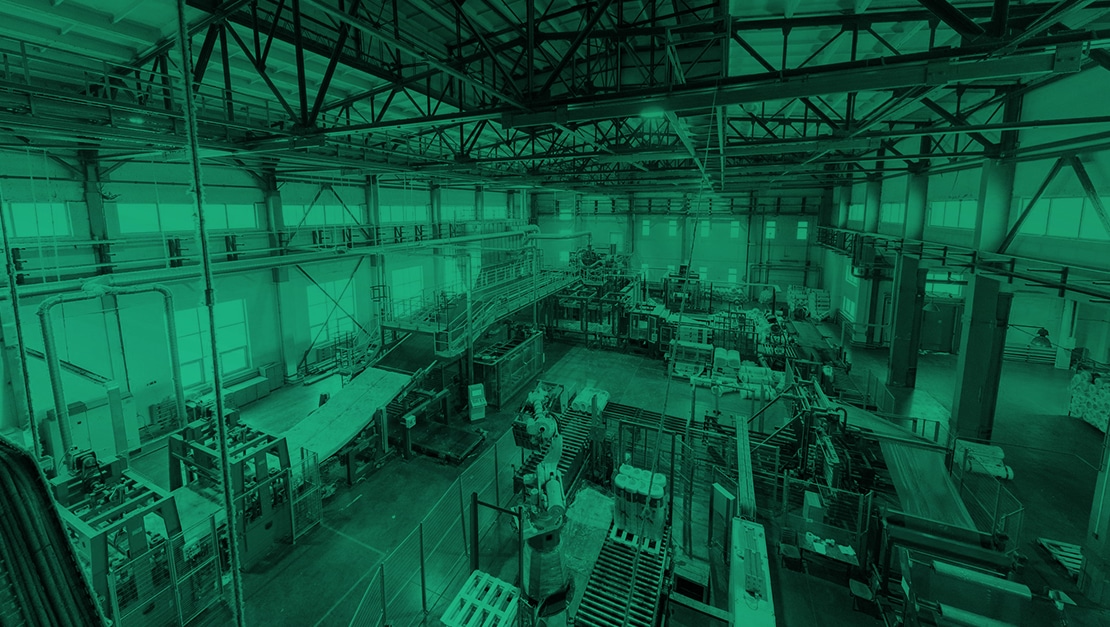When it comes to modern manufacturing, operations management works towards ensuring processes and resources are optimized. Through strategic planning and overseeing production procedures, operations managers in manufacturing aim to deliver high-quality products while bringing down costs.
Many factors go into manufacturing operations, including assessing and implementing customer feedback, working with suppliers, and ensuring successful production. To better streamline all these processes, companies are turning to new operations management solutions, particularly technologies like artificial intelligence (AI).
AI introduces new workflows and tools to manufacturing procedures, simultaneously elevating the standard of production and reducing the reliance on resources and manpower while lowering costs. In this article, we’ll explore AI’s role in manufacturing operations and look at the technologies transforming this industry.
The Emergence of AI in Manufacturing
AI has had a marked impact on the manufacturing sector and takes on many different roles. From traditional rudimentary control systems that provided basic functions in the early stages of automation, to robotics on production lines, AI is advancing quicker than ever with continued computing power paired with cutting-edge technologies.
Today, advanced algorithms and machine learning (ML) solutions have propelled AI to the forefront of manufacturing operations, enabling the technology to learn from data, adapt to changes, and optimize various workflows. From AI predictive maintenance in manufacturing to quality control, AI creates more connected systems that enable organizations to grow sustainably.
According to a survey by Deloitte on AI adoption in manufacturing, many companies indicated that AI is on pace to truly transform the way manufacturing operates:
- 93% of companies believe AI will be a critical technology to drive innovation and growth in the manufacturing industry
- 86% of companies have already adopted AI or plan to do so
- 83% of companies agree that AI will have a significant impact on manufacturing in the next couple of years
Key Benefits of AI in Manufacturing Operations
The growing use of AI in manufacturing operations has led to many advantages. This technology can help on multiple fronts, including efficiency, cost management, customer service, and more. Here are some of the main benefits of including AI in your manufacturing operations:
- Enhanced productivity: AI systems help automate manual and repetitive tasks, speeding up the pace of production and manufacturing workflows. This makes overall production more efficient by reducing downtime and cutting out unnecessary processes
- Better quality control: With AI systems monitoring manufacturing processes in real-time, manufacturers can better ensure consistent quality control and identify defects quicker
- Customized manufacturing: AI systems are more flexible and customizable than other traditional systems, allowing them to meet various manufacturing needs
- Increase client satisfaction: A better product leads to a happier customer, and with AI at the helm of ensuring quality, efficiency, and accuracy, the end result is higher customer satisfaction
- Stronger regulatory compliance: Streamlining operations using AI allows you to ensure procedures meet regulatory compliance on an ongoing basis
- Higher profitability: In addition to reducing costs and resources and ensuring processes run smoothly, AI also gives you a competitive edge, enabling your company to adapt to changes and increase its bottom line easily
AI Technologies Revolutionizing Manufacturing
The infusion of AI technologies has transformed the way manufacturers operate, redefining otherwise traditional processes to make them more efficient and competitive with others on the market. There are a few key AI technologies that are making waves in the manufacturing industry. Let’s take a look at what they are and what they do.
Machine Learning and Predictive Analytics
Using machine learning algorithms to analyze data from multiple sources, AI systems can better predict maintenance times for essential machinery, reducing downtime and positively impacting productivity levels. Additionally, ML can also learn how to analyze production data to identify patterns so that assembly line processes can be optimized.
Robotics and Automation in Assembly Lines
AI-powered robots can work alongside human employees to assist with repetitive or hazardous tasks to make workflows safer. Through automation and robotics, AI can increase the speed of production and stay more consistent throughout by reducing opportunities for human error.
AI in Supply Chain Management and Logistics
There are several ways AI can help with supply chain management. For starters AI and ML algorithms can analyze historical data and market trends to forecast demand, allowing for smoother inventory management. Additionally, AI systems can also optimize order fulfillment, transportation route planning, and other warehouse logistical operations to holistically improve supply chain efficiency.
Quality Control and Defect Detection
Visual sensors controlled by AI platforms can be implemented to help inspect products in real time and identify defects to ensure more consistent quality control. This helps reduce the reliance on manpower while simultaneously cutting out human error and increasing the quality of production.
IoT and Digital Sensors
Smart sensors and IoT-connected devices can gather data on machinery performance, warehouse environmental conditions, and quality information to improve predictive maintenance and operational optimization further. These sensors can identify issues before they arise, helping manufacturing teams prevent production disruptions and breakdowns.
Case Studies: Successful AI Implementation in Manufacturing
The implementation of AI in manufacturing has allowed companies to target higher-quality production goals and refine their operations. Each company turns to a different set of AI systems that corresponds to its goals and unique manufacturing needs. Here’s a look at three recognizable companies and how they implemented AI technology to improve manufacturing operations.
Nissan
Car manufacturer, Nissan, is using AI to produce next-gen vehicles and achieve carbon neutrality by 2050. Thanks to its ‘Intelligent Factory’ technologies, Nissan has used AI to make manufacturing more productive. The company is using robotics to build high-quality vehicles and automate meticulous production processes and has also turned to IoT devices to automate quality inspections and enhance supply chain traceability.
Danone
Multinational food manufacturer, Danone, produces yogurts and dairy products and was looking for a way to remain competitive in the industry. After applying AI and ML systems, Danone has been better able to forecast consumer preferences and trends, allowing it to stay ahead of consumer demand. Integrating AI into its supply chain, Danone has also been able to better track inventory levels and enhance operational efficiency.
Kraft Heinz
Another food manufacturer, Kraft Heinz, has turned to AI to boost its performance and make production more effective. The result? The company has added $30 million to its sales by adding AI to its supply chain. The food manufacturer uses AI and sensors to automate and analyze various production points to reduce downtime, such as using it to optimize tomato paste replenishment. This integration of AI has led to increased quality and also highlighted areas that can be improved.
aiOla: Improving Manufacturing Operations Through Speech
aiOla, a speech-driven AI platform, is also helping manufacturers enhance operations using the power of natural language. aiOla uses speech to enable manufacturers to complete mission-critical actions while simultaneously gathering important data.
With a speech-powered AI system like aiOla, employees can complete machinery inspections in a matter of seconds, making safety and compliance procedures more efficient. aiOla can understand over 100 languages as well as different accents, dialects, and industry jargon, meaning all employees need to do is speak to trigger automations. This process is done entirely hands-free, allowing workers to keep their focus on their tasks without risking safety.
Additionally, aiOla’s AI platform allows manufacturers to improve operations by gathering data through speech, which is information that would otherwise be lost. This data can be used to inform better decision-making as well as predict issues that could lead to downtime. With real-time insights on the manufacturing floor, operations related to supply chain and production can be made more accurate and reliable.
Turn Speech Into Manufacturing Operations Processes
AI has come a long way in the last few years and has truly impacted the entire manufacturing industry. As this technology continues to evolve every day, we’ll likely see even more advancements and refinements in manufacturing.
As a relatively new technology, speech AI provides a pathway for continued growth, success, and innovation for manufacturers. With systems like aiOla, manufacturing companies can gather otherwise lost data to automate and streamline various operations processes.
Schedule a demo with our team to see how aiOla can improve your manufacturing operations.








